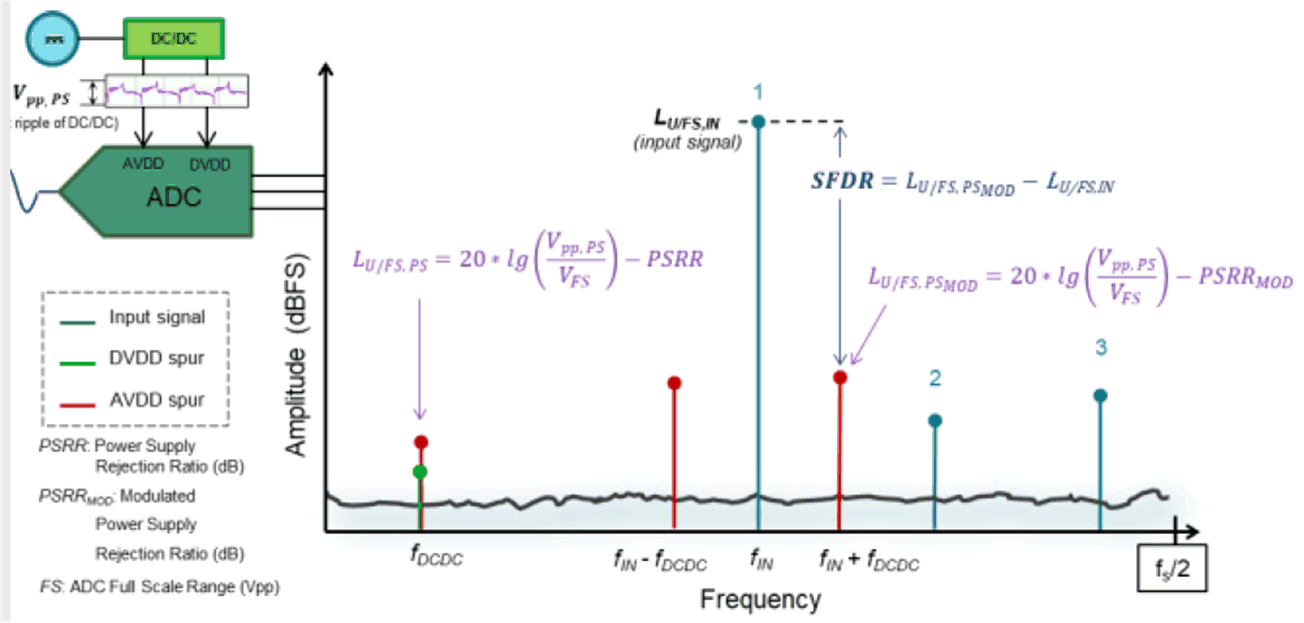SLVAF16A March 2021 – December 2021 AFE7920 , AFE7950 , TPS541620 , TPS62912 , TPS62913
1.1.1 AFE79xx Noise and Ripple Requirements
The AFE79xx is a family of high performance, wide bandwidth multi-channel transceivers, integrating four RF sampling transmitter chains, four RF sampling receiver chains, and up to two RF sampling digitizing auxiliary chains (feedback paths). The high dynamic range of the transmitter and receiver chains allows the device to generate and receive 3G, 4G, and 5G signals from wireless base stations, while the wide bandwidth capability of the AFE79xx devices is designed for multi-band 4G and 5G base stations.
The original product evaluation module (EVM) implements low-noise LDOs in addition to the DC-DC buck regulators on the noise sensitive 1.8 V supply rails to minimize any impairments from the supply network. While the DC accuracy of the supply rail is specified for the AFE79xx, there is no specification on supply voltage noise and supply voltage ripple. Any supply ripple or noise appears attenuated on the output spectrum of the ADC. This attenuation can be expressed as Power Supply Rejection Ration (PSRR) and PSRRMOD (or PSMR) as shown in Figure 1-1.
 Figure 1-1 Power supply noise and ripple
in the ADC output spectrum
Figure 1-1 Power supply noise and ripple
in the ADC output spectrumPSRR is the attenuation of the ADC input supply ripple to the ADC output spectrum at the switching frequency fundamental of the DC-DC converter (fDCDC). PSRRMOD (or PSMR) is the attenuation from the ADC input to the modulated spur in the output spectrum (fin - fDCDC, fin + fDCDC).